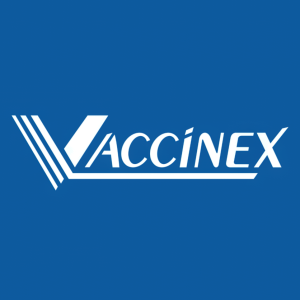Vaccinex CEO, Dr. Maurice Zauderer, Presented New and Promising Phase 2 SIGNAL Trial Data in a Plenary Session at the European Huntington’s Disease Network Meeting
Vaccinex announced promising findings from the SIGNAL Phase 2 Huntington’s Disease Trial presented by CEO Maurice Zauderer at the EHDN2021 meeting. The trial highlighted the cognitive benefits of the pepinemab antibody, especially in patients with moderately advanced HD. A pivotal Phase 3 trial is being planned, with ongoing discussions for potential development partners. The SIGNAL trial included 268 subjects and points towards treating cognitive impairments in HD, a currently incurable disease. The company aims to advance treatments for both HD and Alzheimer's disease.
- Data from the SIGNAL trial indicates potential cognitive benefits of pepinemab in Huntington's disease.
- Subgroup analysis suggests that moderately advanced HD patients may gain the most benefit from treatment.
- Planning of a pivotal Phase 3 trial based on promising results of the SIGNAL study.
- None.
ROCHESTER, N.Y., Sept. 15, 2021 (GLOBE NEWSWIRE) -- Vaccinex, Inc. (Nasdaq: VCNX), a clinical-stage biotechnology Company pioneering a differentiated approach to treating neurodegenerative disease and cancer through the inhibition of SEMA4D, a potent biological mediator, today announced that Maurice Zauderer, PhD, Chief Executive Officer, presented new and promising data from continued analysis of final results of the phase 2 SIGNAL Huntington’s Disease Trial at the European Huntington Disease Network Meeting (EHDN2021), which was held September 9-11, 2021.
Plenary Session and Panel Discussion
On September 10, Dr. Zauderer joined clinical leaders from Roche, Wave, Uniqure and Prilenia to discuss major lessons and continuing plans for clinical trials in Huntington’s disease (HD). Dr. Zauderer highlighted new data from the SIGNAL phase 2 trial believed to further support the cognitive benefit of treatment with the pepinemab antibody. People with HD regularly identify cognitive impairment as a major concern that significantly impacts their daily life.
Dr. Zauderer also presented subgroup analysis suggesting that the greatest benefit from treatment was detected in patients with moderately advanced disease and discussed how these findings will impact the design of a planned pivotal phase 3 trial, for which the company is actively evaluating potential development partners.
During the panel discussion that followed, Dr. Zauderer discussed how he believed the results of SIGNAL and other Vaccinex studies have advanced the company’s understanding of pathogenic mechanisms and help to lay a foundation for optimal timing of treatment and identifying rational combination therapies that may result in even greater efficacy in the future. Vaccinex is grateful to the individuals and their families who participated in the SIGNAL phase 2 study and remains committed to advancing this promising potential therapy in both HD and Alzheimer’s disease.
Dr. Zauderer’s video presentation is available here.
About the SIGNAL trial
SIGNAL was a phase 2, multi-center, randomized, double-blinded, placebo-controlled clinical trial in subjects with early manifest and late prodromal HD to assess safety, tolerability, pharmacokinetics, and efficacy of pepinemab. The study included 179 subjects with early manifest disease and 89 subjects diagnosed as late prodromal. Individuals were randomized 1:1 for monthly intravenous infusion with either 20 mg/kg pepinemab or placebo for at least 18 months. The study is now complete and a phase 3 study is being planned to expand on promising data pointing to cognitive benefits of treatment with pepinemab.
About Huntington’s disease
Huntington’s disease is an inherited condition that compromises brain functions through progressive damage to neurons and supporting glial cells. People with HD develop problems with cognition, judgement, emotion, behavior, and motor activity. These symptoms become progressively worse over time. There is no known cure for HD and currently no approved treatment that delays the onset or slows the progression of disease.
Forward Looking Statements
To the extent that statements contained in this presentation are not descriptions of historical facts regarding Vaccinex, Inc. (“Vaccinex,” “we,” “us,” or “our”), they are forward-looking statements reflecting management’s current beliefs and expectations. Such statements include, but are not limited to, statements about the Company’s plans, expectations and objectives with respect to the results and timing of clinical trials of pepinemab in various indications, the use and potential benefits of pepinemab in Huntington’s disease Alzheimer’s disease, cancer and other indications, and other statements identified by words such as “may,” “will,” “appears,” “expect,” “planned,” “anticipate,” “estimate,” “intend,” “hypothesis,” “potential,” “suggests,” “advance,” and similar expressions or their negatives (as well as other words and expressions referencing future events, conditions, or circumstances). Forward-looking statements involve substantial risks and uncertainties that could cause the outcome of the Company’s research and pre-clinical development programs, clinical development programs, future results, performance, or achievements to differ significantly from those expressed or implied by the forward-looking statements. Such risks and uncertainties include, among others, uncertainties inherent in the execution, cost and completion of preclinical and clinical trials, uncertainties related to regulatory approval, risks related to the Company’s dependence on its lead product candidate pepinemab, the ability to leverage its ActivMAb® platform, the impact of the COVID-19 pandemic, and other matters that could affect its development plans or the commercial potential of its product candidates. Except as required by law, the Company assumes no obligation to update these forward-looking statements. For a further discussion of these and other factors that could cause future results to differ materially from any forward-looking statement, see the section titled “Risk Factors” in the Company’s periodic reports filed with the Securities and Exchange Commission (“SEC”) and the other risks and uncertainties described in the Company’s Form 10-K for yearend December 31, 2021 and subsequent filings with the SEC.
Investor Contact
Jeremy Feffer
LifeSci Advisors, LLC
212-915-2568
jeremy@lifesciadvisors.com

FAQ
What were the results of the SIGNAL Phase 2 trial for VCNX?
What is the next step for Vaccinex after the SIGNAL trial?
How many subjects were involved in the SIGNAL trial?







